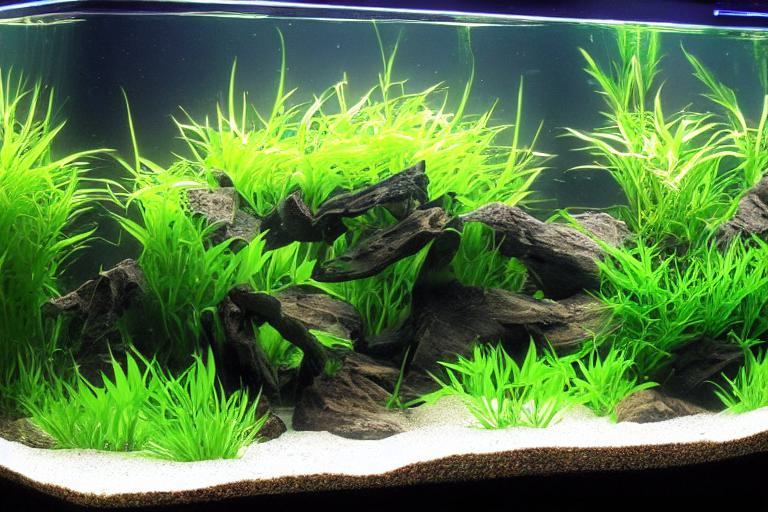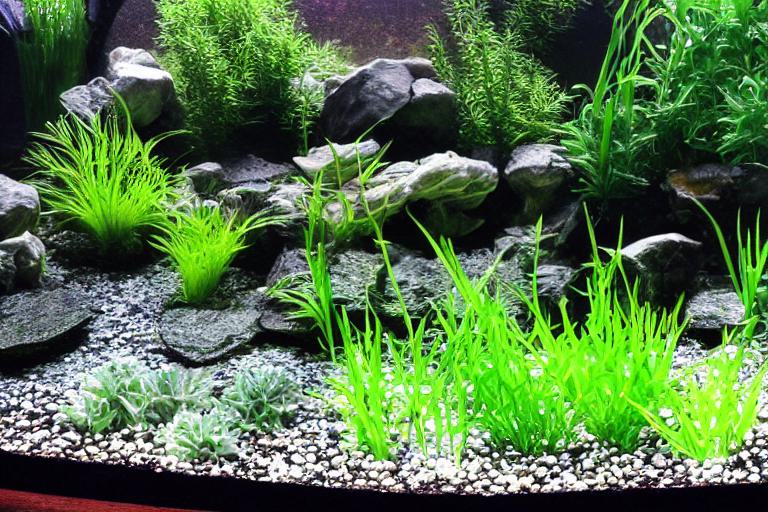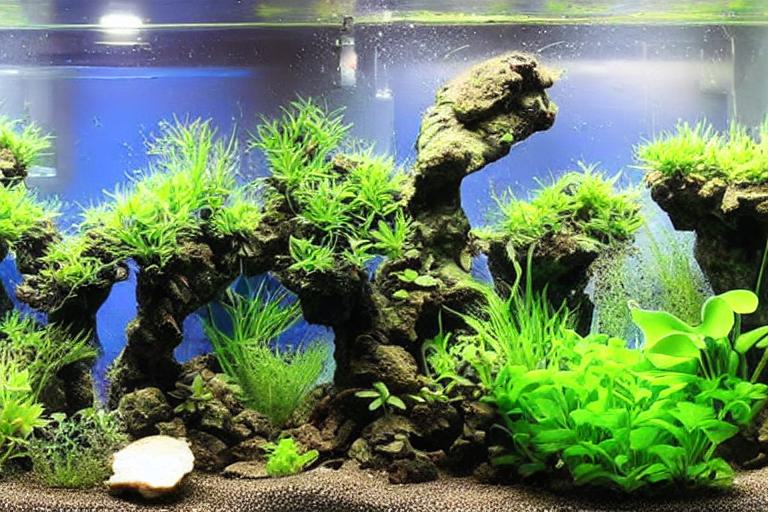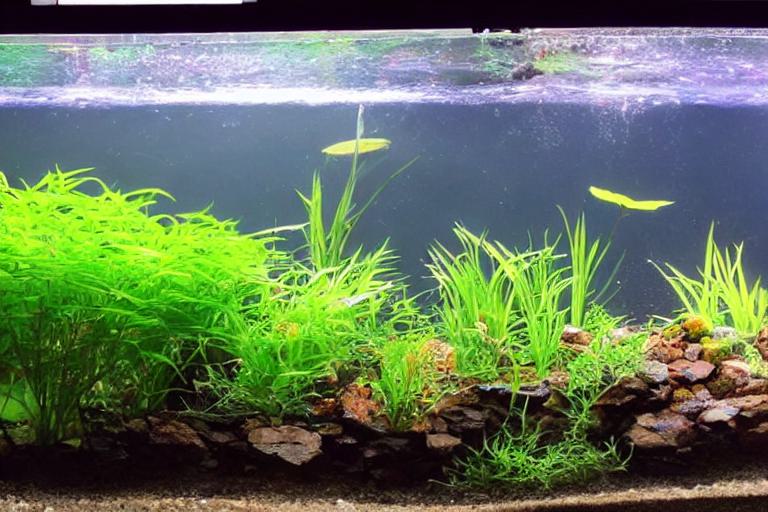Aquarium plants are a beautiful addition to any fish tank, but can they grow in cold water? The simple answer is yes! Aquarium plants are very versatile and can adapt to a wide range of temperatures, including cold water. In fact, many aquarium plants actually prefer cooler water, so if you live in a colder climate, don’t worry – your plants will be just fine!
What is the ideal temperature for your aquarium plants?
Aquarium plants are a great addition to any fish tank, providing both beauty and a natural filtration system. But what is the ideal temperature for your aquarium plants?
However, there are also a few species that can tolerate cooler temperatures, down to about 60 degrees. Most aquarium plants are tropical, and prefer water temperatures between 72-82 degrees Fahrenheit.
Too much heat can be damaging to your plants, but a little bit of cold won’t hurt them. If you’re not sure what kind of plants you have, or what temperature they prefer, it’s best to err on the side of caution and keep the water a little warmer.
Somewhere between 72-82 degrees Fahrenheit is best. But as long as you don’t let the water get too cold or too hot, your plants should be just fine. So, what is the ideal temperature for your aquarium plants?

Saltwater vs. freshwater plant temperatures
For one, most saltwater plants are tropical and need warm water to thrive. Freshwater plants, on the other hand, can be found in a variety of climates and can adapt to a wide range of temperatures. Aquarium plants can indeed grow in cold water, but there are a few things to keep in mind. That said, there are some freshwater plants that prefer cooler water, so it really depends on the species you’re looking to grow.
Freshwater plants, on the other hand, are more tolerant of fluctuations in temperature, so you don’t need to be as worried about temperature changes. This means that if you’re keeping saltwater plants in an aquarium, you’ll need to be more careful about maintaining a stable temperature. When it comes to temperature, the main difference between saltwater and freshwater plants is that saltwater plants are more sensitive to changes in temperature.
For freshwater plants, you have a bit more leeway when it comes to temperature, but it’s still a good idea to check what the ideal temperature range is for the plants you’re interested in. Ultimately, whether or not you can grow plants in cold water depends on the species you’re looking to grow. If you’re interested in growing saltwater plants, it’s important to research the ideal temperature for the plants you want to grow.
Are there aquarium plants that dislike cold water?
These plants are typically native to temperate climates and can withstand temperatures as low as 50 degrees Fahrenheit. Aquarium plants are typically tropical plants that prefer warm water, but there are a few species that can tolerate cold water.
These plants are all hardy and can thrive in a wide range of water conditions. Some cold-tolerant aquarium plants include Anubias barteri, Echinodorus bleheri, and Sagittaria subulata.
You should also make sure that your aquarium is located in a room that doesn’t get too cold, as this can stress the plants and make them more susceptible to disease. If you live in a cold climate, you may need to take some extra steps to ensure that your aquarium plants stay healthy. For example, you may need to use a heater to maintain a consistent water temperature.
Cold water pond plants
Although most aquarium plants prefer warm water, there are a few species that can thrive in cold water conditions. Water lilies, for example, are a popular choice for ponds and other water features in colder climates.
These plants are all relatively easy to care for and can add a splash of color and interest to any pond or water feature. Other cold water plants include water irises, watercress, and water chestnuts.
If you live in a colder climate and are interested in adding plants to your pond or water feature, be sure to research which species will do best in your particular climate. With a little bit of planning, you can create a beautiful and inviting water feature that will be the envy of your neighborhood.

Plants that can grow in cold and hot temperatures
In general, tropical plants prefer warm water, while temperate plants do better in cooler water. Aquarium plants can grow in both cold and hot water, but they may not thrive in extreme temperatures.
Some aquarium plants, such as Anubias and Java fern, can tolerate a wide range of temperatures and will do well in both cold and warm water. Others, such as Cryptocoryne and Echinodorus, are more sensitive to temperature changes and may suffer if the water is too cold or too hot.
If you’re not sure what kind of plants you have, it’s best to err on the side of caution and keep the water temperature within the safe range for tropical plants (78-82 degrees Fahrenheit). That way, you’ll avoid any potential problems and give your plants the best chance to thrive.

What are the benefits of plants that can grow in cold water?
Some plants are able to grow and thrive in cold water. These plants can provide a number of benefits to their owners.
This can be beneficial for fish that prefer cooler water temperatures. One benefit of having plants that can grow in cold water is that they can help to keep the water in an aquarium cooler. In addition, these plants can help to oxygenate the water and provide a natural filtration system.
These plants come in a variety of colors and shapes, and can help to create a more visually appealing aquarium. Another benefit of cold water plants is that they can add beauty and interest to an aquarium.
These plants are typically hardy and require less maintenance than plants that require warmer water temperatures. Finally, cold water plants can be easier to care for than some other types of plants.

So, to conclude
Aquarium plants can grow in cold water, but they may not thrive. If you are considering adding plants to your aquarium, it is best to research the specific needs of the plants you are interested in. Cold water can stunt the growth of some plants and cause others to die. Some aquarium plants may need special care in order to survive and thrive in cold water.
Frequently Asked Questions
1. Can aquarium plants grow in cold water?
Yes, aquarium plants can grow in cold water. However, they will not grow as quickly as they would in warmer water.
2. What temperature is too cold for aquarium plants?
Aquarium plants can tolerate a wide range of temperatures, but they will not thrive in water that is below 50 degrees Fahrenheit.
3. What kind of plants can grow in cold water?
Aquarium plants that are native to cold water environments, such as Anubias and Echinodorus, will do well in cooler aquariums.
4. Will my aquarium plants need special care if I keep them in cold water?
No, your aquarium plants will not need special care if you keep them in cold water. However, you may need to provide them with additional lighting to compensate for the lower water temperature.
5. What are the benefits of keeping aquarium plants in cold water?
Aquarium plants that are kept in cold water will typically have a longer lifespan than those kept in warmer water. Additionally, cold water aquariums can be easier to maintain than those with warmer water, as they are less likely to experience algae growth.
Final thoughts
Aquarium plants can grow in cold water, but they will not thrive. Cold water aquariums are not as common as tropical aquariums, but they can be just as beautiful. If you are thinking about setting up a cold water aquarium, be sure to do your research and choose plants that will do well in your climate.
